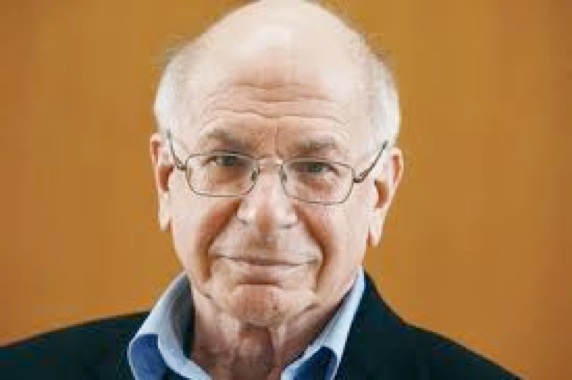
Yes, that is right. I said it. Daniel Kahneman is a rock star. I recognize that the man in the photo above bears no resemblance to Mick Jagger or Axl Rose but I have to admit that if I saw him out in public I would elbow my girlfriend in the gut and giggle as though I had just spied Justin Bieber.
Daniel Kahneman is an academic powerhouse who has changed the world with his research and his writing. And I am not the only person who thinks so. In 2002, this psychologist won the Nobel prize for Economic Sciences. The prize was for the work he pioneered with Amos Tversky. Kahneman and Tversky helped us to understand that we are not always rationale thinkers – in fact, we are incredibly flawed decisions makers largely because of the short cuts our brain uses to make sense of the vast quantities of information that we are required to process at any given moment.
In my view, the coolest thing about Kahneman’s work is in the design of the studies he conducted in the 60s and 70s. As an example, he demonstrated that when people are asked to make an estimate when they are uncertain about the boundaries, they rely on anything in the environment on which to ‘anchor.’ He demonstrated this by asking people to estimate how many countries were in the United Nations and then spinning a roulette wheel in front of them. Their estimates were consistently closer to the number on the roulette wheel than to any other value. Wicked awesome Kahneman! This finding is the basis for my paper on anchoring in the performance evaluation process (see latham budworth yanar whyte.pdf).
Kahneman is in the news again because he released a new book, Thinking Fast and Slow. It is an excellent combination of his classic work with Tversky and his understanding of the new advances in the field of decision making. He describes two mental processes – the thinking that we do automatically and that which is deliberate. These are the fast and slow processes. In classic Kahneman story telling, he explains how we think and describes the errors that we are prone to make given our tendency to rely on our automatic processing. If you have the time, pick it up and read it – slowly and deliberately. If you don’t, check back in a couple weeks and I will provide the Cole’s notes version – and perhaps some inspiration that it has given me for a new piece of research.

No Comments so far ↓
Like gas stations in rural Texas after 10 pm, comments are closed.